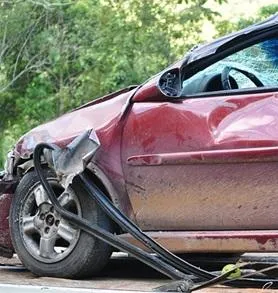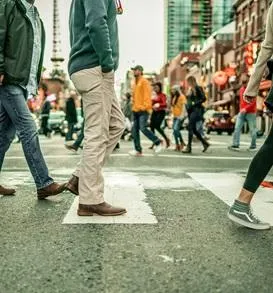
Steps to Take After a Motorcycle Accident in
Worcester, MA
Motorcycle accidents frequently result in serious injuries that require immediate medical attention. If you're involved in a motorcycle accident and haven't been taken to a hospital, it's crucial to visit an emergency room as soon as possible—even if you feel your injuries aren't severe. Medical professionals at the emergency room can assess and treat potential broken bones, concussions, internal injuries, and other harm. Additionally, they will document your injuries, which is an essential step in any future insurance claims or legal actions. It’s important to ensure that all your injuries are properly recorded right from the start.




Worcester, MA Motorcycle Accident Attorneys at Michael J. Spillane & Co.
At Bay State Injury Attorneys, our commitment to our clients is unwavering. Our experienced Worcester, MA motorcycle accident attorneys meticulously review all insurance policies involved, including those of the at-fault driver and your own, to ensure comprehensive coverage assessment. We diligently gather and present evidence to maximize the potential compensation for your case.
Navigating the complexities of each case, we prepare to take every motorcycle accident claim to trial if necessary. This rigorous preparation signals to insurance companies our seriousness, often leading to more favorable negotiation positions. Known for our readiness to proceed to trial, we have successfully secured substantial awards for our clients, enhancing our ability to advocate effectively for your medical and financial needs both now and in the future.
Worcester, MA Motorcycle Accident FAQ
What Types of Compensation Are Available for Motorcycle Accident Injuries in Worcester, MA
If you are injured in a motorcycle accident in Worcester, MA due to another driver's fault, you are entitled to seek various forms of compensation. These can include:
- Medical Expenses: Coverage for all medical treatments related to the injuries sustained in the accident.
- Lost Wages: Compensation for any income lost due to the inability to work following the accident.
- Pain and Suffering: Compensation for physical pain and emotional distress resulting from the accident.
- Scarring and Disfigurement: Compensation for any lasting physical changes that affect appearance or function.
- Loss of Enjoyment of Life: Compensation for the loss of ability to enjoy daily activities and life pleasures that were possible before the accident.
- Punitive Damages: In cases of wrongful death or egregious negligence, punitive damages may also be sought to punish the wrongdoer and deter similar conduct in the future.
These damages aim to restore your financial stability and compensate for the physical and emotional impact of your injuries.
Who Pays My Bills After A Motorcycle Accident?
In Massachusetts, unlike car and bicycle accident victims, motorcyclists are not eligible for no-fault Personal Injury Protection (PIP) benefits. This lack of immediate benefits, combined with the potential for severe injuries, underscores the importance of promptly consulting an experienced motorcycle accident attorney if you're involved in a crash.
However, there is a form of financial relief available to motorcyclists if they opted for medical payments coverage as part of their motorcycle insurance. This coverage can be invaluable in covering initial medical expenses following an accident.
Responsibility for compensating you should fall on the party at fault, whether it's another driver, motorcyclist, pedestrian, or cyclist. They should cover your damages through their liability insurance policy. If you encounter resistance from the insurance company of the at-fault party—a common scenario—don't worry. Our Worcester-based attorneys have a strong track record of challenging major insurance companies and securing the compensation necessary to cover your medical bills and other accident-related expenses. We are committed to ensuring that your financial burdens are addressed so you can focus on recovery.
Lane-Splitting Regulations for Motorcyclists in Massachusetts
In Massachusetts, lane-splitting is illegal. Lane-splitting refers to the practice of riding a motorcycle between two lanes of traffic moving in the same direction, often along the painted lines on the road. Motorcyclists might choose to lane-split to navigate through slow-moving traffic more quickly than if they remained behind cars, particularly in congested traffic where stopping and starting is more labor-intensive for motorcyclists than for car drivers. This practice allows them to maintain momentum without the need to repeatedly stop and start.
Despite the convenience it may offer to motorcyclists, lane-splitting is strictly prohibited under Massachusetts General Laws, Chapter 89, Section 4A. This law mandates that motorcycles must be operated within a single lane and are not allowed to move between lanes of traffic. Motorcyclists are required to pass other vehicles one at a time and in a single file, and they are only permitted to share a lane with another motorcycle. These regulations are in place to enhance safety on the roads for all users.
Do I Have To Wear A Helmet?
In Massachusetts, both motorcycle operators and their passengers are legally required to wear helmets. This helmet law applies universally across the state, including in Worcester, MA and all other cities. The regulation is designed to enhance safety for all individuals on motorcycles by reducing the risk of head injuries in the event of an accident. Compliance with this law is mandatory, and it's crucial for all motorcyclists and their passengers to adhere to this safety standard whenever they are riding.
What Are The Most Common Causes of Motorcycle Accidents in Massachusetts
Motorcycle accidents often have devastating consequences, particularly when they involve collisions with cars at high speeds. Here are some of the most frequent causes:
1. Negligent Driving: The most prevalent cause of motorcycle versus car accidents is negligence by car drivers. Lack of caution can put everyone at risk, with motorcyclists facing a higher chance of serious injury or death.
2. Failure to Yield the Right-of-Way: Many motorcycle accidents occur at intersections, where cars fail to yield the right-of-way, especially to motorcyclists who are more vulnerable to severe injuries.
3. Blind Spots: Cars have significant blind spots that can obscure a motorcyclist’s presence, particularly near the edges of a vehicle. This poses a high risk when cars change lanes without noticing a nearby motorcycle.
4. Misjudging Speed or Distance: Drivers often misjudge a motorcycle’s speed or distance, leading to accidents when they pull out in front of a motorcycle at intersections.
5. Distracted Driving: The use of smartphones and other distractions while driving is comparable to driving under the influence, posing significant dangers on the road.
6. Driving Under the Influence: Despite ongoing public safety efforts, driving under the influence of alcohol continues to be a major problem, severely impairing a driver's ability to safely operate their vehicle.
7. Drowsy Driving: Operating a vehicle while fatigued can impair judgment and slow reaction times, similar to the effects of driving under the influence, increasing the likelihood of drifting into another lane or colliding with a motorcycle.
Motorcyclists must remain vigilant and aware of their surroundings to react promptly to potential dangers. Even the most cautious riders who practice defensive driving are at risk from negligent drivers. It’s crucial for every motorcyclist to remember that a moment's inattention by another driver could lead to life-altering consequences.
Your Advocate for Justice Awaits.
Get your personalized legal representation focused on winning your case. Tap into our decades of expertise today and start with a free, no-obligation case evaluation. Click the button below for details.





